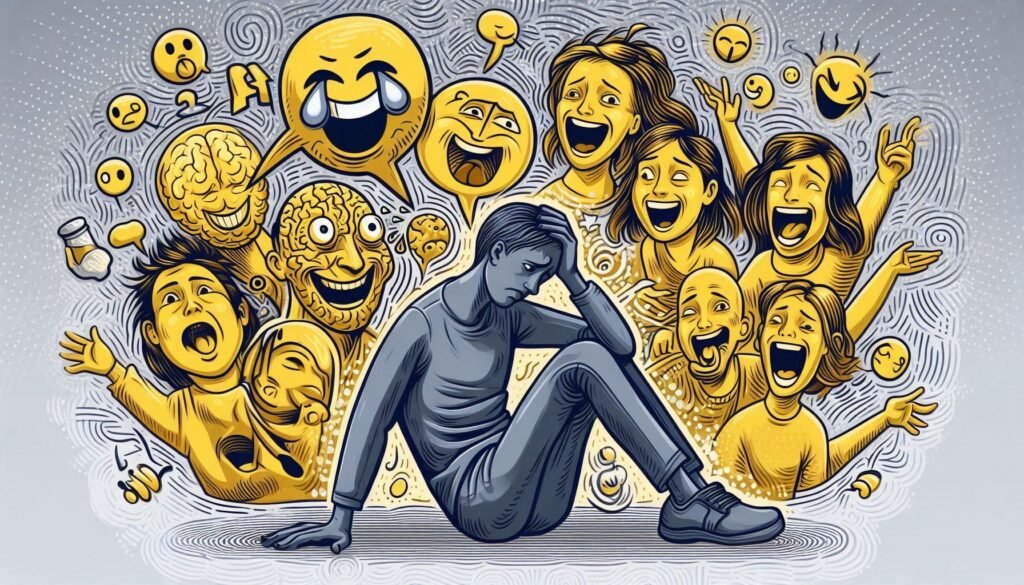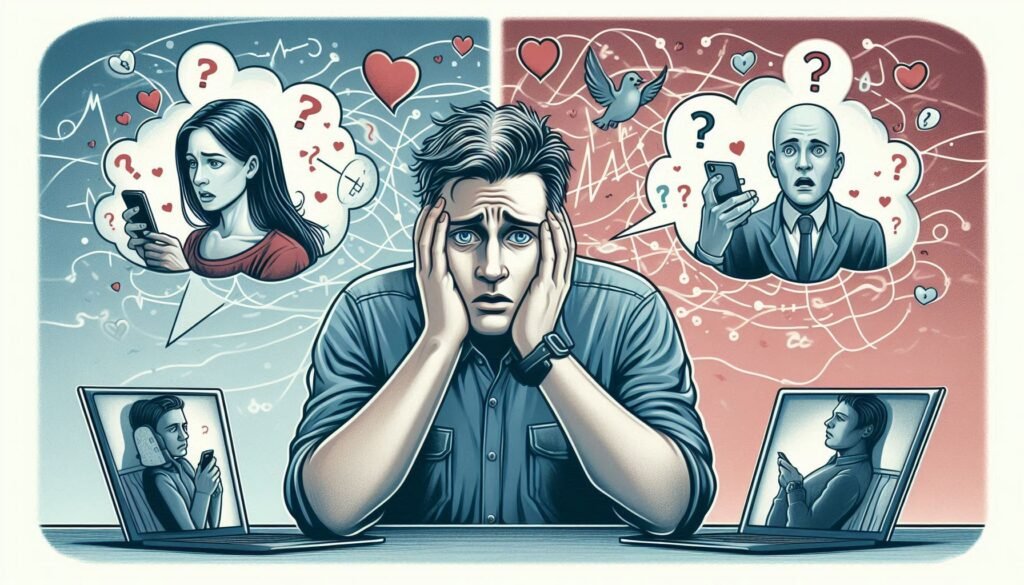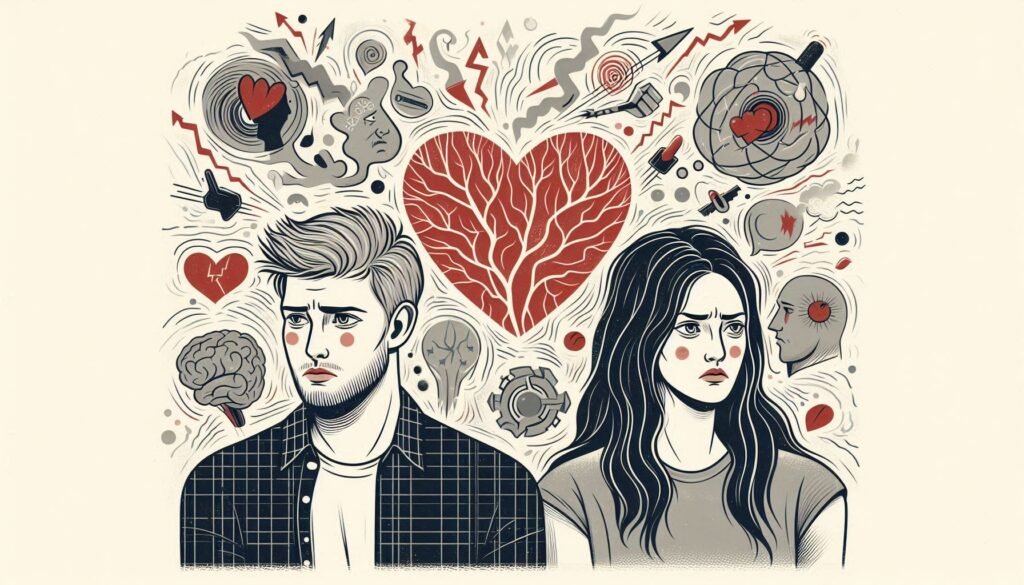Laughter is often seen as the best medicine, but what happens when anxiety and neuroticism color our comedic lens? The impact of neuroticism on humor appreciation and use is a fascinating interplay that can reveal much about how we connect with ourselves and others. Neurotic individuals, characterized by emotional instability and heightened sensitivity to stress, may experience humor differently than those with more stable temperaments.
This exploration delves into the intricate dynamics between personality traits and laughter. How does neuroticism shape our preferences for certain types of humor? Can self-deprecating jokes serve as both a shield and a sword in navigating social interactions? By examining these questions, we’ll uncover how anxiety influences not just our ability to appreciate humor but also how it manifests in everyday life.
Join us on this journey through the whimsical yet complex world of comedy viewed from an anxious perspective. You might find that laughter isn’t just about joy; it’s also a reflection of our inner struggles—and sometimes, that’s where the real punchlines lie.

Understanding Neuroticism and Its Relationship to Humor
Neuroticism is a personality trait that reflects emotional instability, anxiety, and moodiness. Individuals high in neuroticism often experience negative emotions more intensely and frequently than their less neurotic counterparts. This predisposition can significantly influence how they perceive humor and engage with it.
People with heightened levels of neuroticism may find solace in humor as a way to cope with their feelings of insecurity or distress. However, this relationship is complex; while some may gravitate toward humor for relief, others might struggle to appreciate it due to their pervasive worries.
Research suggests that individuals high in neurotic traits might prefer darker or more self-deprecating forms of comedy. These styles can resonate deeply because they mirror the internal struggles faced by those who are anxious or insecure.
Conversely, excessively focusing on personal flaws through humor could exacerbate feelings of inadequacy for some neurotics. The intricate balance between understanding oneself and enjoying laughter makes exploring this relationship essential for both psychological insight and social interaction.
The Psychology of Humor: Cognitive and Emotional Processes
Humor is a fascinating interplay of cognitive and emotional processes. At its core, humor often arises from the unexpected—a twist that defies our expectations. This element of surprise requires cognitive processing, where individuals must recognize incongruities and resolve them to appreciate the joke fully.
Emotional responses play a significant role as well. Laughter triggers the release of endorphins, promoting feelings of happiness and connection. This physiological reaction encourages social bonding among individuals who share a laugh, reinforcing relationships through shared experiences.
Additionally, humor also serves as a lens through which people can navigate complex emotions. It allows for an exploration of sensitive topics in lighter contexts, making difficult conversations more palatable. By employing humor as a tool for expression, we can confront uncomfortable realities without becoming overwhelmed.
This dynamic relationship between cognition and emotion reveals why humor varies so significantly across different personalities—especially among those with heightened neuroticism who may perceive threats or anxieties differently than others.
Neuroticism and Humor Styles: Preferences and Tendencies
Neuroticism significantly influences humor styles, shaping the way individuals appreciate and express laughter. Research has shown that those high in neurotic traits often gravitate toward specific types of humor, such as self-deprecating or dark humor. These preferences can serve as coping mechanisms for dealing with their anxieties.
Individuals with elevated neuroticism may find solace in self-deprecating jokes, using them as a shield against criticism. By making light of their own flaws, they create a buffer that helps manage social anxiety and insecurity. This style not only reflects their internal struggles but also invites empathy from others.
Conversely, some neurotic individuals may lean towards aggressive forms of humor like sarcasm or irony. While this approach can provide temporary relief through the release of tension, it risks alienating peers due to its biting nature.
The relationship between neuroticism and humor is complex; it’s influenced by personal experiences and cultural contexts. Understanding these nuances sheds light on how people navigate the challenges posed by their personalities through laughter.
Self-Deprecating Humor: A Double-Edged Sword for Neurotic Individuals
Self-deprecating humor often emerges as a coping mechanism for neurotic individuals. By poking fun at themselves, they aim to diffuse tension and connect with others. This style can make them appear relatable and approachable, fostering social bonds.
However, the use of self-deprecation comes with risks. For those high in neuroticism, it may reinforce negative self-perceptions and exacerbate feelings of inadequacy. Instead of lightening the mood, such humor can deepen anxiety if taken too far.
Additionally, while some listeners might appreciate this form of humor, others may find it uncomfortable or off-putting. The balance between eliciting laughter and revealing vulnerability is delicate for neurotic individuals navigating these interactions.
This duality makes self-deprecating humor a complex tool for managing social situations and internal struggles. Understanding its impact is essential for anyone who identifies with heightened levels of anxiety or insecurity in their comedic expressions.
Neuroticism’s Influence on Humor Perception and Interpretation
Neuroticism significantly shapes how individuals perceive and interpret humor. Those high in neurotic traits often view jokes through a more critical lens, leading them to focus on potential negative implications rather than the humor itself. This heightened sensitivity can result in misinterpretations, causing them to miss the comedic intent.
Moreover, their predisposition towards anxiety may color their reactions. A lighthearted jest could evoke feelings of insecurity or self-doubt instead of laughter. As such, neurotic individuals might find themselves laughing less frequently at situations others deem funny.
Interestingly, this emotional landscape can lead to a unique appreciation for dark or absurd humor. Such styles resonate with those who grapple with anxiety because they reflect real-life struggles and vulnerabilities that neurotics are all too familiar with.
This nuanced relationship indicates that while neuroticism can hinder enjoyment of traditional humor forms, it simultaneously opens doors to alternative comedic expressions that acknowledge deeper emotional truths.
The Role of Anxiety in Humor Production and Appreciation
Anxiety significantly shapes how individuals produce and appreciate humor. For many, it acts as a lens through which jokes and comedic situations are interpreted. Those experiencing heightened anxiety often find themselves gravitating toward humor that aligns with their feelings of discomfort or unease.
This connection between anxiety and humor appreciation can lead to a unique form of comedy, characterized by self-deprecation or irony. Individuals may use these styles as a way to confront their fears while simultaneously providing relief to themselves and others. Such humor serves as both an expression of vulnerability and a tool for social bonding.
Moreover, anxious individuals might process humorous content differently. Their heightened sensitivity can amplify the emotional resonance of jokes, allowing them to connect more deeply with shared experiences of insecurity or awkwardness in social contexts.
As they navigate through laughter, anxious people engage in cognitive strategies that create distance from distressing thoughts. This interplay not only fosters resilience but also transforms potentially overwhelming moments into opportunities for levity.
Humor as a Coping Mechanism for Neurotic Individuals
Humor can serve as a vital coping mechanism for individuals with high levels of neuroticism. It provides an outlet to navigate the complexities of anxiety and stress. By finding humor in their struggles, neurotic individuals can distance themselves from negative emotions.
Self-deprecating humor is particularly common among those who are neurotic. This style allows them to laugh at their own flaws, easing the tension that often accompanies self-criticism. It creates a momentary reprieve from overwhelming feelings and fosters resilience.
Moreover, sharing jokes or funny stories with others helps build social connections. These interactions can enhance feelings of belonging and support, which are crucial for mental well-being. Humor transforms potentially isolating experiences into shared laughter.
Engaging in humorous activities stimulates positive physiological responses. Laughter triggers endorphin release, improving mood while reducing stress hormones like cortisol. Thus, humor becomes not just a distraction but also a healing tool for those grappling with neuroses.
Social Implications: How Neuroticism Affects Humorous Interactions
Neuroticism plays a significant role in shaping how individuals engage in humorous interactions. Those high in neurotic traits often experience heightened sensitivity to social cues and emotional states. This can lead to an increased awareness of the nuances in humor, both spoken and unspoken, which can affect their participation in comedic exchanges.
However, this sensitivity may also make neurotic individuals more prone to misinterpret jokes or perceive them as personal attacks. Their anxiety may transform innocuous banter into sources of distress, complicating their ability to connect with others through humor. As a result, they might withdraw from social situations where laughter is prevalent.
Conversely, some neurotic personalities seek out humor as a way to mask their insecurities. They may use self-deprecating jokes to diffuse tension and create bonds with others who share similar feelings of unease or vulnerability. This strategy can foster connections but risks reinforcing negative self-perceptions.
The interplay between neuroticism and humor highlights the complexity of human interaction. Understanding these dynamics can enhance empathetic engagement among peers while promoting healthier communication styles.
Cultural Variations in Humor Appreciation Among Neurotic Individuals
Humor appreciation varies significantly across cultures, influenced by social norms and values. For neurotic individuals, these cultural differences can shape their humor preferences and interpretations. In some cultures, self-deprecating humor is celebrated, allowing neurotic individuals to bond over shared vulnerabilities. In contrast, other societies may view it as a sign of weakness.
Language plays a crucial role in how humor is conveyed and received. Puns or wordplay that are appreciated in one culture might not translate well to another. This linguistic barrier can leave neurotic individuals feeling isolated when trying to connect through laughter.
Cultural taboos also dictate what topics are acceptable for humor. Neurotic individuals may navigate complex social landscapes where certain subjects evoke anxiety rather than amusement. Consequently, understanding these nuances fosters better communication among diverse groups.
Moreover, the collective nature of some cultures emphasizes group harmony over individual expressiveness. For neurotics seeking affirmation through humor, this could hinder their ability to share personal jokes or anecdotes without fear of judgment.
Therapeutic Applications: Using Humor to Manage Neurotic Tendencies
The therapeutic potential of humor in managing neurotic tendencies is gaining traction in psychological practices. Laughter can serve as a powerful antidote to anxiety and stress, making it an effective tool for individuals grappling with neuroticism. By incorporating humor into therapy sessions, mental health professionals create a safe space where clients can explore their anxieties while also finding relief through laughter.
Humor encourages cognitive reframing, allowing individuals to view their worries from a lighter perspective. This shift not only reduces the emotional weight of these concerns but also fosters resilience against future stressors. Techniques such as comedic storytelling or playful role-playing can promote engagement and facilitate deeper conversations about underlying issues.
Additionally, group therapies that incorporate humor help build camaraderie among participants. Shared laughter strengthens social bonds and diminishes feelings of isolation often felt by those displaying high levels of neuroticism. Tapping into the impact of neuroticism on humor appreciation and use offers innovative ways to enhance emotional well-being while navigating the complexities of anxiety-filled lives.


